 Many years ago, I heard from George Pickering that when you assume, you make an ‘Ass’, out of ‘U’ and ‘Me’. When years pass, I can’t agree more.
Many years ago, I heard from George Pickering that when you assume, you make an ‘Ass’, out of ‘U’ and ‘Me’. When years pass, I can’t agree more.
The literal meaning of assumption is the act of taking for granted or supposing. In other words, you choose to believe something that you suppose without proof, without double checking..
Have you ever thought how much assumption is going on in our daily lives? Well, recently I have been.. Here are a few things I came out with;
I assume my husband would read my mind and magically know what I really want, for example. When he doesn’t, I am shocked and disappointed :).
What about the stakeholders in the educational institutions?
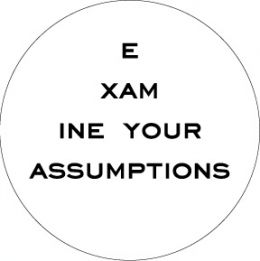 The higher education councils assume that everyone who graduates from the university to become a teacher is a great teacher already. They assume that the system works greatly. They assume that it is easy to teach and learn languages. They assume that the policies they made years ago have been working well for years.
The higher education councils assume that everyone who graduates from the university to become a teacher is a great teacher already. They assume that the system works greatly. They assume that it is easy to teach and learn languages. They assume that the policies they made years ago have been working well for years.
Managers assume that the decisions they give are clearly understood and welcome by all the employees. They assume that all the mails they send are read thoroughly. They assume that their messages are not interpreted very very differently and speculated about. They assume that systems the establish work fairly. They assume everyone believes that they are doing their best. Sometimes they assume that long meetings are productive. They sometime assume that their promises which have not been kept are forgotten in time. They assume that when the syllabus is given to the teachers they will go and teach it as suggested in the best way. They assume that the rubrics are understood and used by everyone perfectly.
Teachers assume that the students can understand w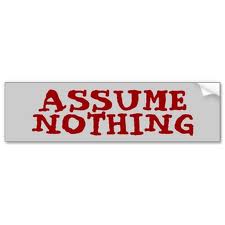 hat they have been teaching in class all through the lesson, or the opposite of it. I mean, they assume that students cannot discover the language points from the contextual clues and the guiding questions. They assume that they should spoon-feed the students to make sure that the language point has been understood. Sometimes they assume that a student who comes late to their lesson is actually disrespectful and rude. Sometimes they assume that students who are bored in class are bored because of their teaching styles. Teachers sometimes believe that the managers don’t understand them at all.
hat they have been teaching in class all through the lesson, or the opposite of it. I mean, they assume that students cannot discover the language points from the contextual clues and the guiding questions. They assume that they should spoon-feed the students to make sure that the language point has been understood. Sometimes they assume that a student who comes late to their lesson is actually disrespectful and rude. Sometimes they assume that students who are bored in class are bored because of their teaching styles. Teachers sometimes believe that the managers don’t understand them at all.
Publishers assume that the books they produce are great and institutions can use them efficiently all the time. They assume that one size fits all. They assume that teachers read the preface, the teaching manuals and know the methodology behind the course books while picking the books.
Parents assume that their kids always go to school to learn and benefit from the lessons. They assume that their childr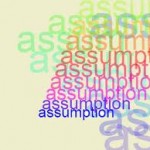 en ask meaningful questions to learn more and improve themselves. They assume that their children never skip lessons. They assume that when they pay more the get better education.
en ask meaningful questions to learn more and improve themselves. They assume that their children never skip lessons. They assume that when they pay more the get better education.
Students assume that teachers and the management know what they are doing very well. Or the opposite, they assume that nobody knows anything. They assume that collating enough points just to pass means they have learned everything necessary. They assume that finishing the course means they are competent. They assume that just being in class will be enough.
On the otherhand, should we never assume? Well, look at this quote and decide. Like everything, a good balance will bethe answer.. I assume:)
“If we all worked on the assumption that what is accepted as true is really true, there would be little hope of advance.”


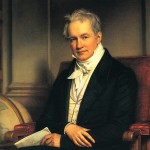


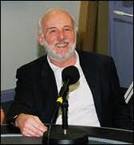
 d by my former director Oya Basaran as a guest
d by my former director Oya Basaran as a guest 
